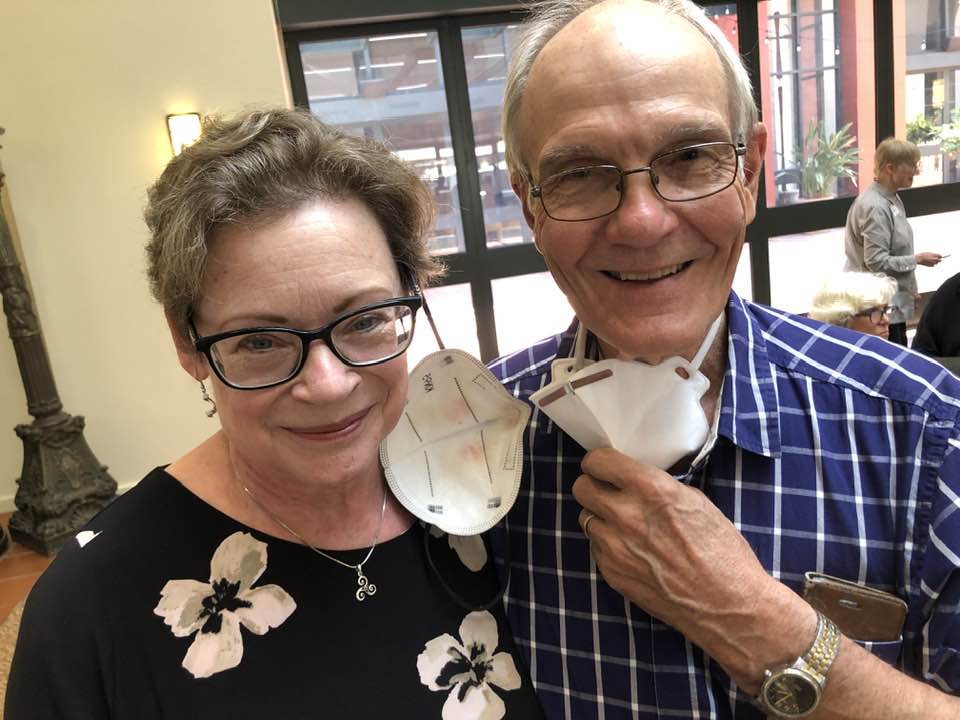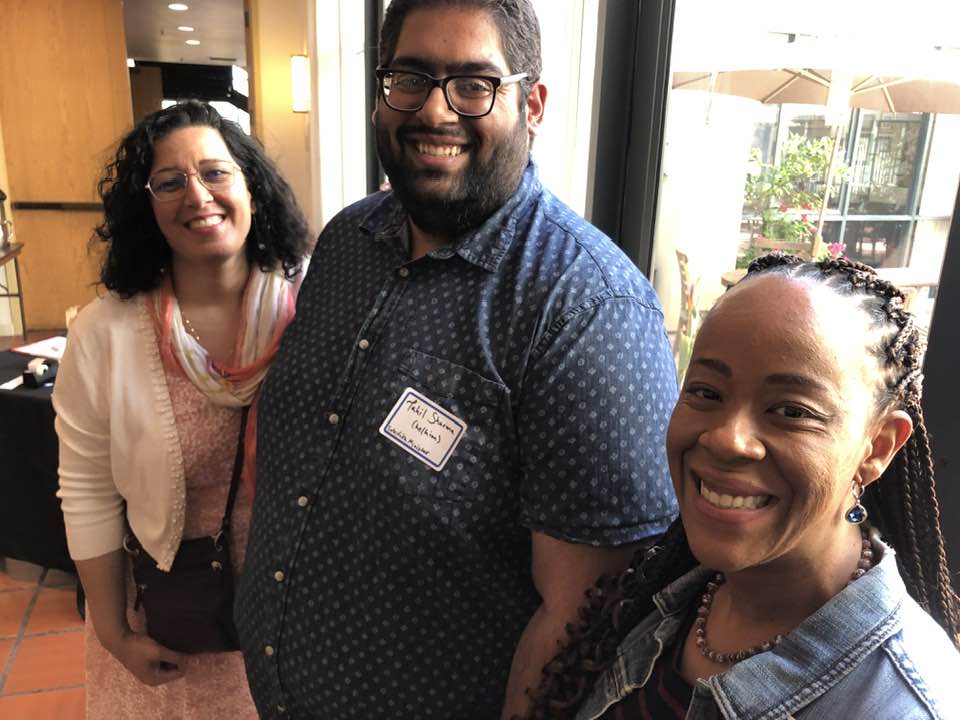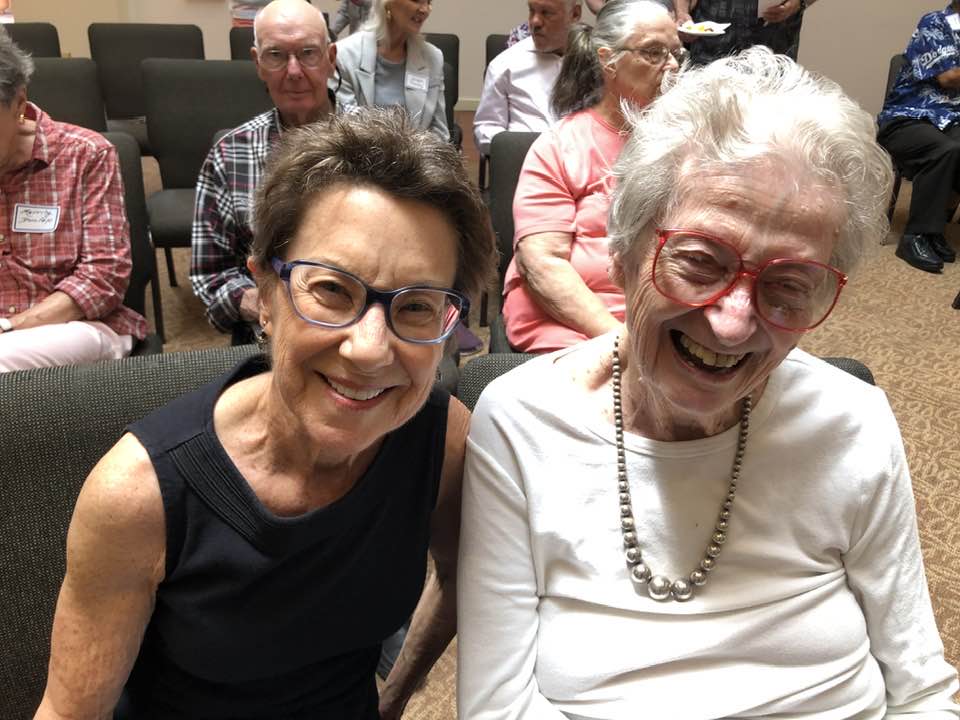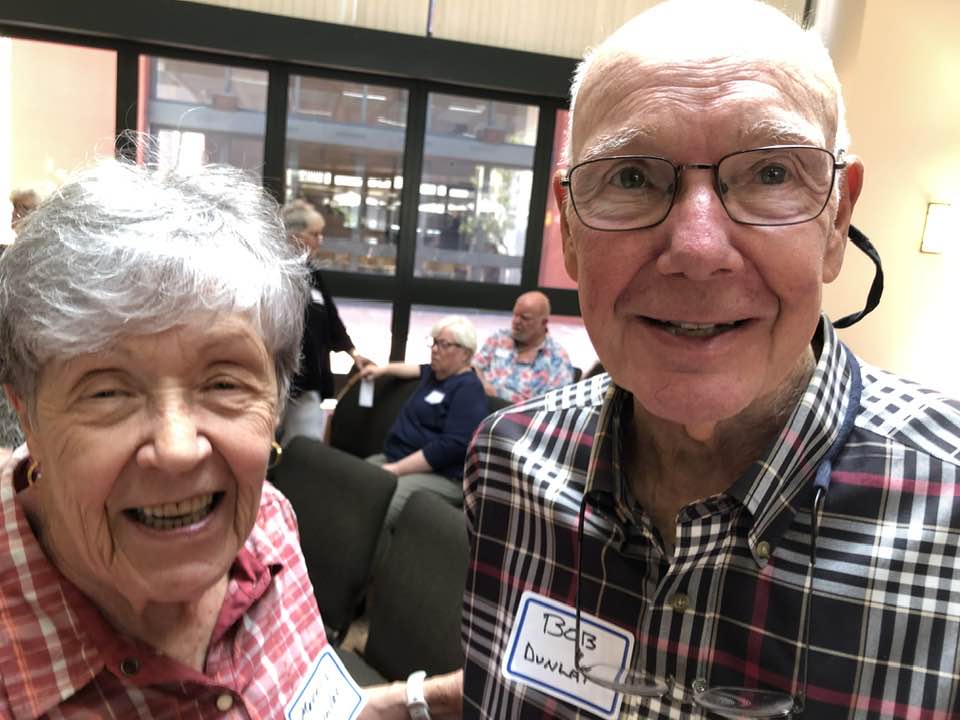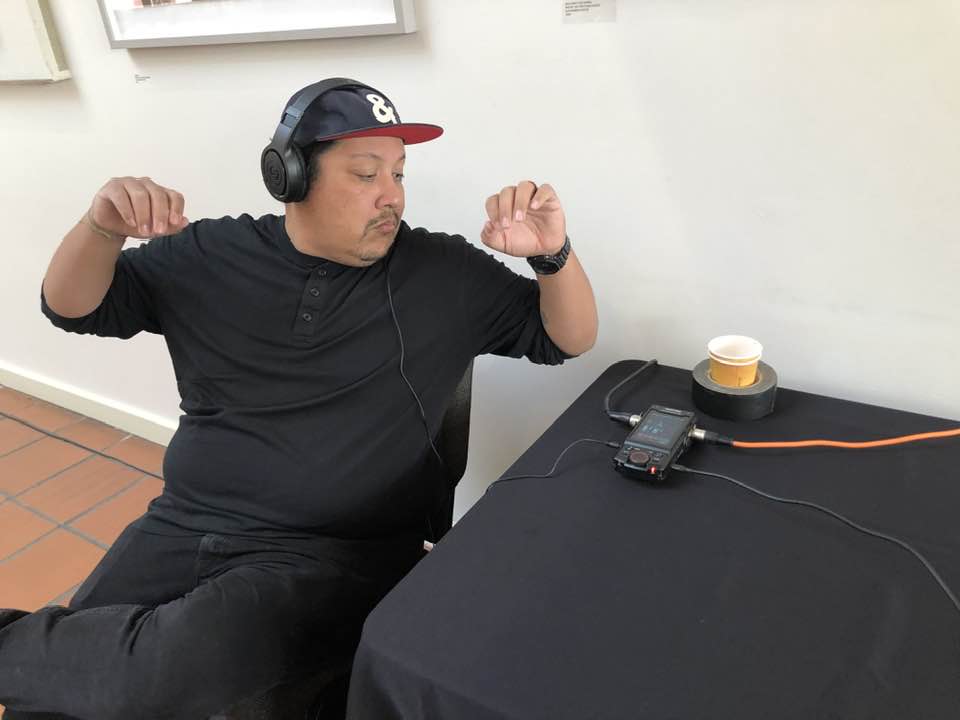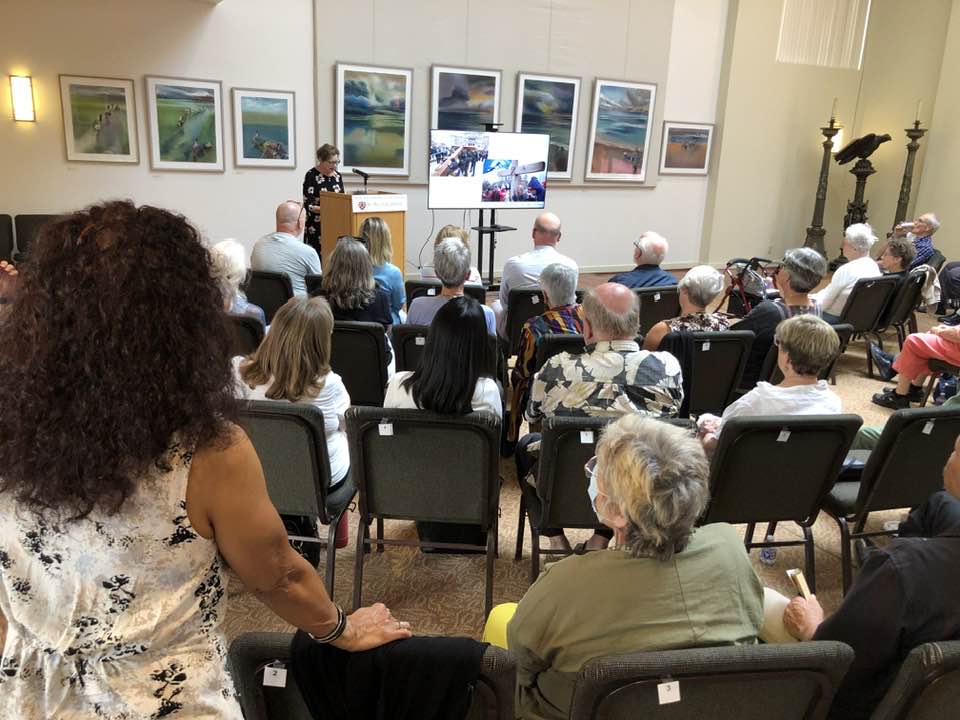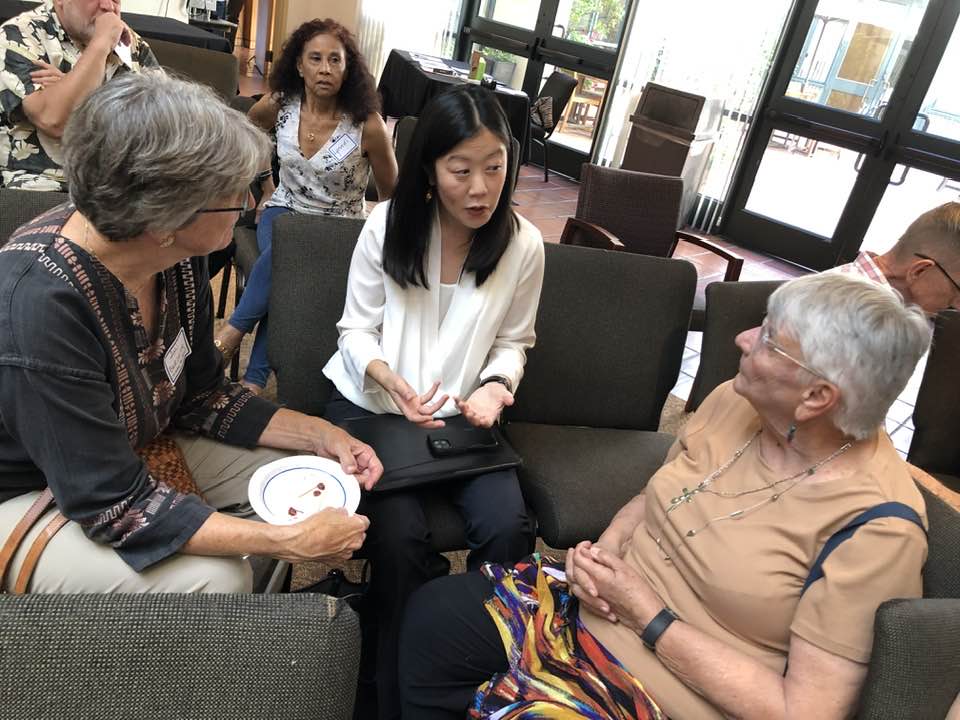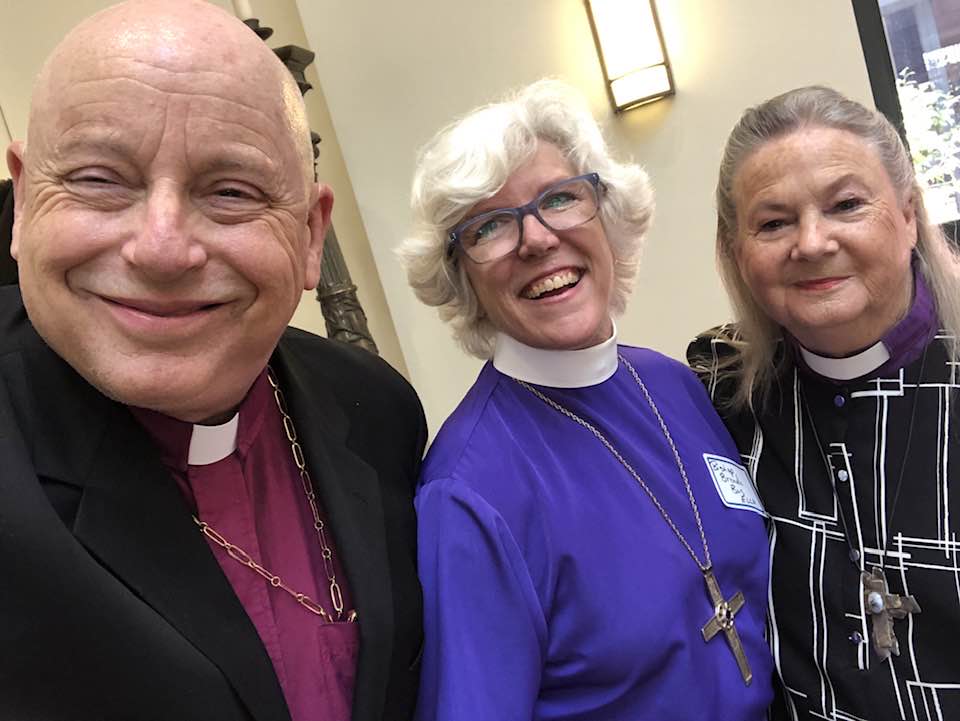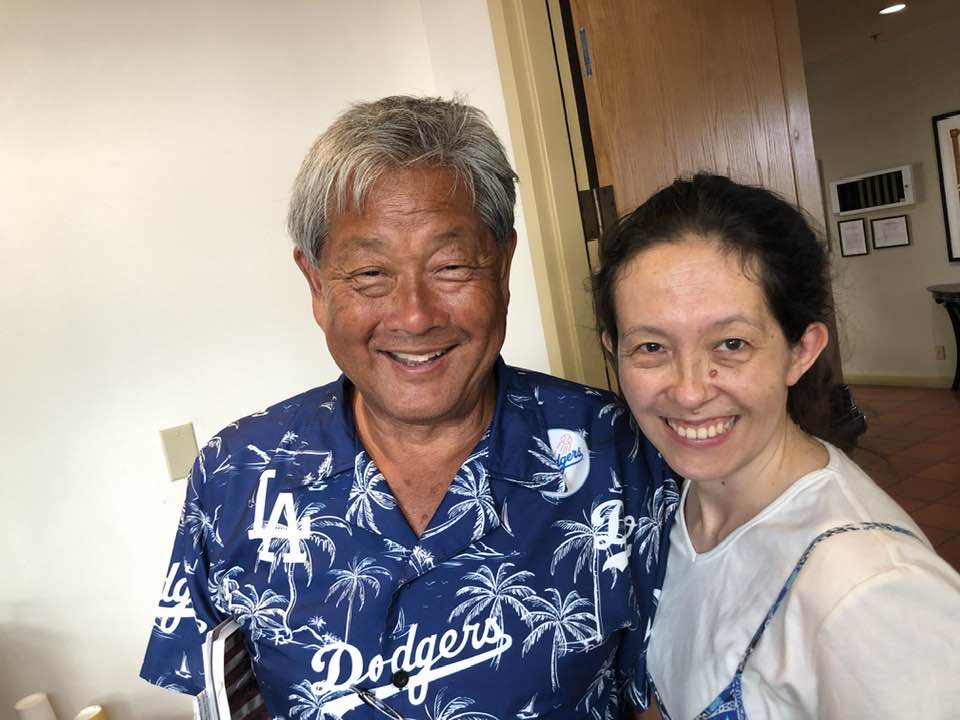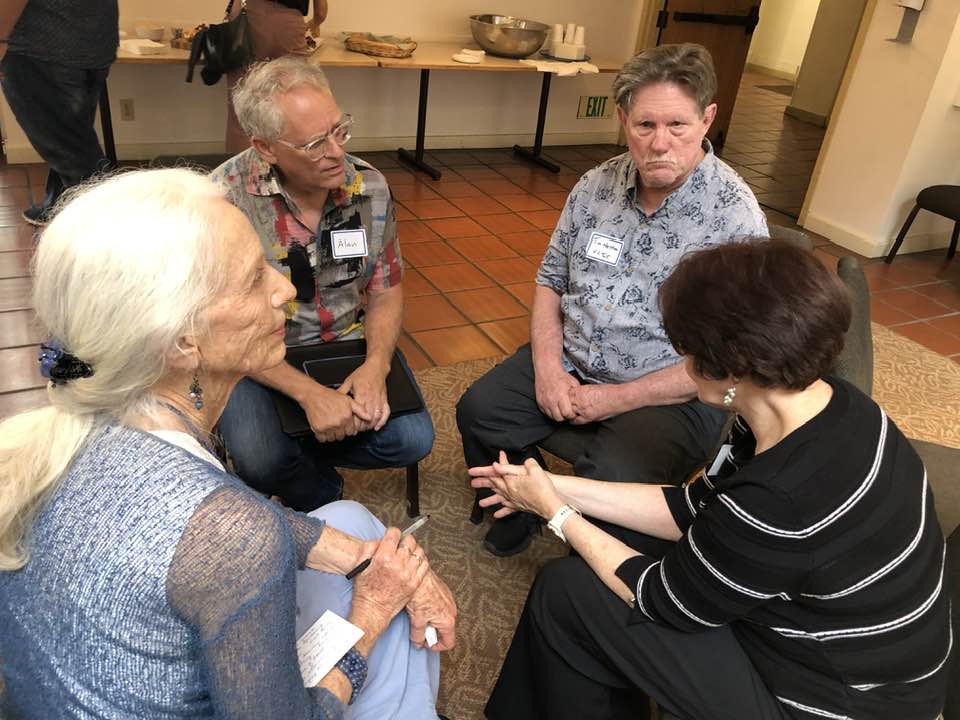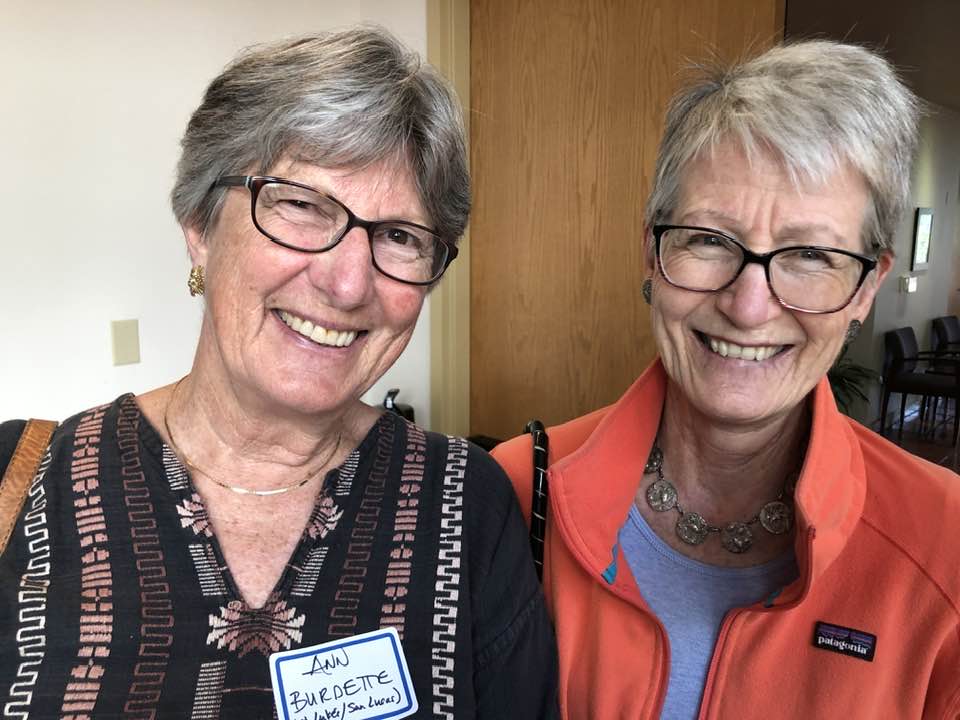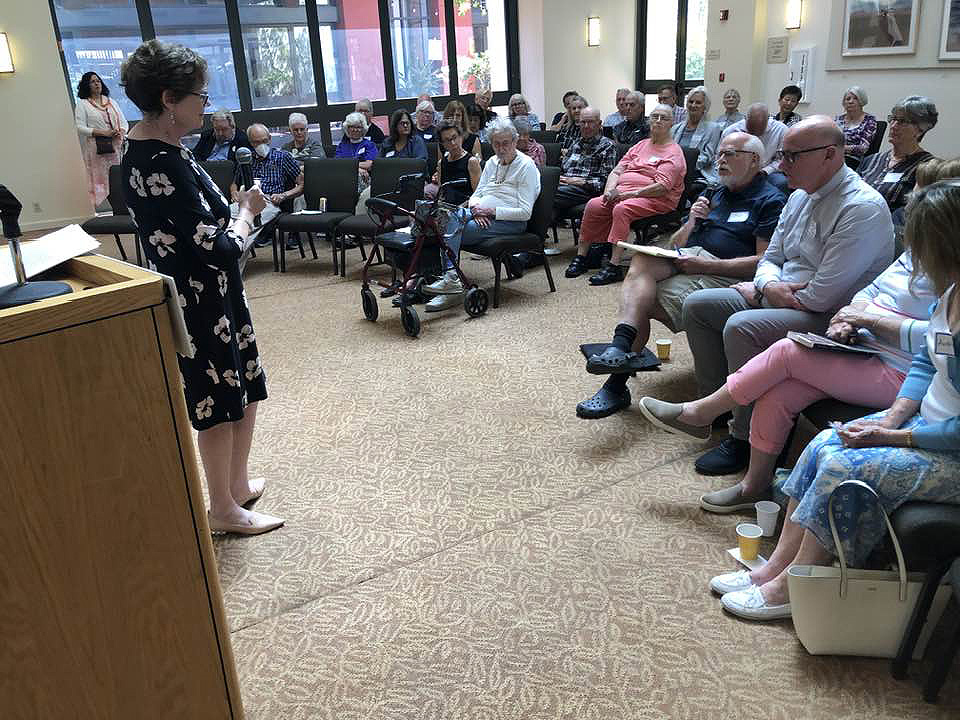
Nearly 70 people made time on Sunday afternoon to gather in the great hall of St. Paul’s Commons, Echo Park for an Episcopal Diocese of Los Angeles mini-conference on white Christian nationalism, hosted by the Program Group on Ecumenical and Interfaith Life under the leadership of distinguished Orange County interfaith leader Dot C. Leach and our devoted next-stage interfaith think tank scholars, Sable Manson, Tasneem F Noor, and Tahil Sharma. Canon for Common Life Bob Williams also played an indispensable role.
My scrapbook is below. Our eloquent keynote speakers were the Rev. Dr. Pamela Cooper-Wright, Episcopal priest and author of “The Psychology of Christian Nationalism,” and the Rev. Janna Louie, a Los Angeles-based American Baptist Church pastor who serves as chief of staff of the Baptist Joint Committee for Religious Liberty. My Lutheran and Methodist bishop colleagues, Brenda Bos and Mary Ann McDonald Swenson, joined me in bookending the two-hour program, which also included small group work.
Dr. Cooper-Wright’s research and book were catalyzed by Trump’s coup attempt and the seeming convergence, during the Epiphany assault on the U.S. Capitol, between white nationalist and Christian expressions. We’ll have a video of the program soon that will be ideal for use by missions and parishes, a helpful supplement to the three-week study guide created by the Rev. Canon Susan Russell, our canon for engagement across difference. Learn more here.
From Dr. Cooper-Wright’s talk, two statistics especially stood out: One in four Republicans and as many as one in five Americans believe in QAnon. That subject is still obscure enough to mainstream Americans that the Apple Notes program I used to write this post doesn’t have the word in spellcheck. The second number is a little squishy. It could be as few as 15% of Americans. It is perhaps difficult to admit to a family member or neighbor, much less to a pollster, that one has been convinced that child-molesting cannibals have gotten themselves together to oppose Trump. All this cuts both ways. As I said in my opening remarks, I have friends who believe I’ve been brainwashed by a half-century of reading “The New York Times.”
When someone believes differently than we, no matter how outrageous their beliefs may seem, Cooper-Wright recommends we avoid arguing. Some may be beyond persuasion or even civil conversation. For those who aren’t, better to ask questions, and keep relationships open, than to interrupt, argue, or contradict. Her advice reminds me of how seldom I’ve changed someone else’s mind about politics or religion.
Dr. Cooper-Wright stresses that no one should feel obligated to remain in relationship with people who insist on expressing disrespectful or dignity-denying opinions. As a matter of fact, the times are sorely testing the Christian notion of being respectful of those who disagree. Twenty years ago, it was marriage equity and immigration. These days it’s whether President Biden won the election and Hillary Clinton drinks human blood. But if we can nevertheless remain in community with one another, then by all means let’s.
We then have to figure out how to move forward together, out of our current seeming red-blue paralysis, toward the promised land of a more purple union. Not everyone will want to go along. If as many as a fifth of us put stock in some impossible to credit version of American reality, it’s reminiscent of prior studies revealing that 20% of those living in our democratic republic favor authoritarian solutions to our problems. This energy is at the heart of white Christian nationalism, together with the fear of the loss of privilege. Dr. Cooper-Wright demonstrated that some people are convinced that democracy, our most vital civic value, actually gets in the way, especially if it means we’ll be expected at last to shed the fantasy that we’re a Christian nation or are destined to be a majority white one.
These views aren’t held by most of us. But federalism and the Electoral College give those who do hold them considerable leverage. In fairness, some on the left are also impatient with the incremental change we tend to get in a complex, free, democratic society. Over time, we may trust and pray that the majority will get its way. Most folks live in the bell curve in our civic via media, practical, non-ideological and open to a range of views and more or less open to the United States’ pluralistic destiny. The best response to white Christian nationalism, as with all extremism, is to marginalize it.
